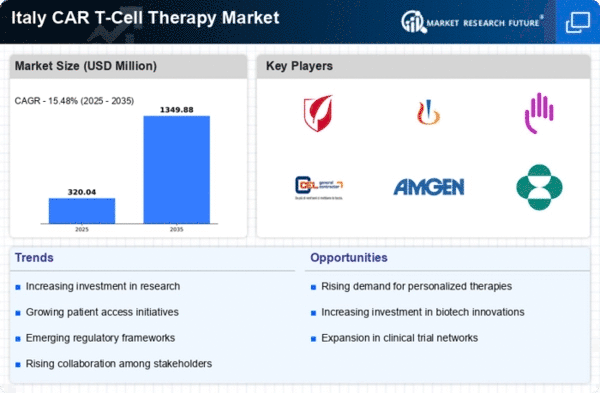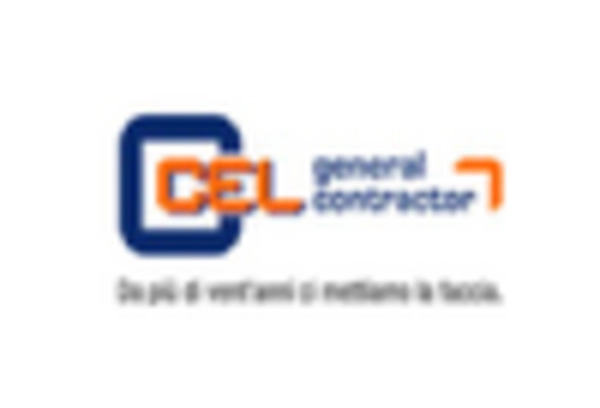Regulatory Framework Enhancements
The regulatory landscape for the car t-cell-therapy market in Italy is evolving, with authorities streamlining approval processes for innovative therapies. Recent initiatives by the Italian Medicines Agency (AIFA) aim to expedite the review of CAR T-cell therapies, reducing the time from clinical trials to market availability. This regulatory support is crucial for fostering innovation and ensuring that patients have timely access to new treatments. As a result, the car t-cell-therapy market is likely to experience accelerated growth, with an expected increase in the number of approved therapies. This environment not only encourages investment but also enhances the competitive landscape, benefiting patients and healthcare providers alike.
Advancements in CAR T-Cell Technology
The car t-cell-therapy market is experiencing rapid advancements in technology, which significantly enhances treatment efficacy. Innovations in genetic engineering and cell processing techniques are leading to more effective therapies. For instance, the development of next-generation CAR T-cells, which can target multiple antigens, is gaining traction. This technological evolution is expected to increase the market's value, projected to reach approximately €1.5 billion by 2026 in Italy. Furthermore, these advancements are likely to improve patient outcomes, thereby driving demand for CAR T-cell therapies in clinical settings. As healthcare providers become more aware of these innovations, the adoption rate is anticipated to rise, further propelling the growth of the car t-cell-therapy market.
Increasing Investment in Cancer Research
Investment in cancer research is a crucial driver for the car t-cell-therapy market. In Italy, funding from both public and private sectors is on the rise, with an estimated increase of 20% in research budgets allocated to oncology. This influx of capital is facilitating the development of novel CAR T-cell therapies, which are essential for addressing the unmet needs of patients with hematological malignancies. Additionally, collaborations between academic institutions and pharmaceutical companies are becoming more prevalent, fostering an environment conducive to innovation. As a result, the car t-cell-therapy market is likely to benefit from enhanced research capabilities and accelerated product development timelines.
Rising Patient Demand for Personalized Medicine
The CAR T-Cell Therapy market is significantly influenced by the rising demand for personalized medicine among patients. As individuals become more informed about their treatment options, there is a growing preference for therapies tailored to their specific genetic profiles. CAR T-cell therapies, which are inherently personalized, align well with this trend. In Italy, patient advocacy groups are actively promoting awareness of CAR T-cell therapies, leading to increased inquiries and demand. This shift towards personalized treatment approaches is expected to drive market growth, as healthcare providers adapt to meet the evolving expectations of patients. Consequently, the car t-cell-therapy market is poised for expansion as it aligns with the broader movement towards individualized healthcare.
Growing Awareness Among Healthcare Professionals
The car t-cell-therapy market is witnessing a surge in awareness among healthcare professionals regarding the potential of CAR T-cell therapies. Educational initiatives and training programs are being implemented to equip oncologists and hematologists with the necessary knowledge to utilize these therapies effectively. This increased awareness is crucial, as it directly influences treatment decisions and patient referrals. In Italy, surveys indicate that over 70% of oncologists are now familiar with CAR T-cell therapies, compared to just 40% two years ago. This shift is expected to lead to a higher adoption rate of CAR T-cell therapies, thereby driving market growth and improving patient access to cutting-edge treatments.
















